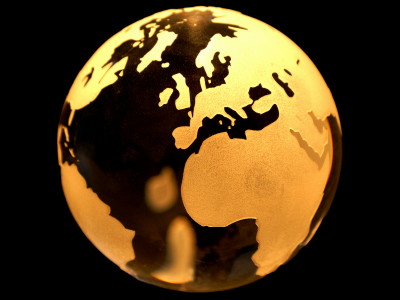Survey results show that 18% of Japanese people believe that 'violence and intimidation are acceptable to bring about change,' with the percentage even higher among young people.

The Edelman Trust Barometer, a report compiled by leading PR firm Edelman, compiles shocking findings such as declining trust in government and media among low-income earners, an increasing number of people believing that the wealthy have gained unfairly, and a certain number of people being willing to use violence and intimidation to bring about change. The survey included responses from people in 28 countries, including Japan, the United States, the United Kingdom, South Korea, and France. A report highlighting the responses of Japanese people was also released.
2025 Edelman Trust Barometer | Edelman
2025 Edelman Trust Barometer - Japanese translation2025 Edelman Trust Barometer_Japan Report.pdf
(PDF file) https://www.edelman.jp/sites/g/files/aatuss256/files/2025-03/EdelmanTrustBarometerJapanReport.pdf
The Edelman Trust Barometer is an annual report conducted by Edelman that surveys trust in businesses, governments, the media, NGOs, etc. By measuring trust in authority and institutions, it can provide insight into social trends, such as the extent to which social stability is fragile and the degree to which people are becoming polarized.
The 2025 Edelman Trust Barometer surveyed people in 28 countries: Argentina, Australia, Brazil, Canada, China, Colombia, France, Germany, India, Indonesia, Ireland, Italy, Japan, Kenya, Malaysia, Mexico, Netherlands, Nigeria, Saudi Arabia, Singapore, South Africa, South Korea, Spain, Sweden, Thailand, the United Arab Emirates, the United Kingdom, and the United States. Between 1,150 and 2,124 people responded per country, for a total of 33,194 respondents.
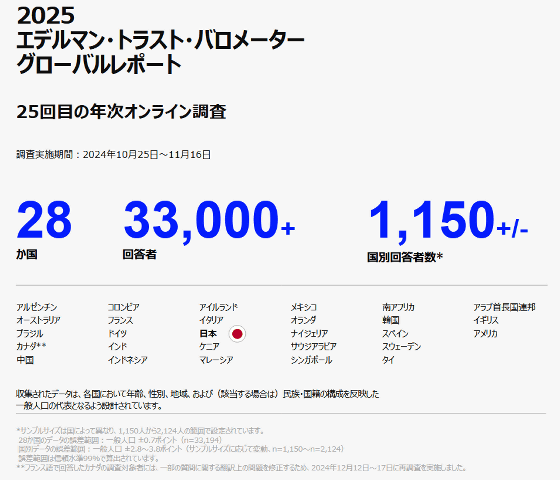
The table below shows the average trust rates for business, government, media, and NGOs. Japan has a very low average trust rate, falling to 39% in 2024, second only to the UK, and to last place at 37% in 2025. Edelman points out that the election has hindered the improvement in trust rates.
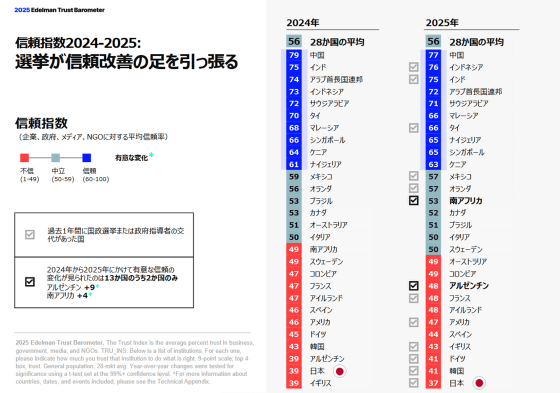
Since 2012, the percentage of people who trust companies, the government, the media, and NGOs has been widening between the low-income and high-income groups in Japan. In a 2025 survey, 43% of high-income people trusted these organizations, while only 30% of low-income people did. In particular, the percentage of people who trust companies was 58% for the high-income group and 37% for the low-income group, showing a large difference depending on income.
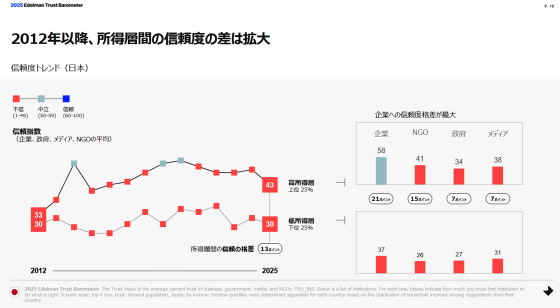
The trust in employers is expected to fall by 3
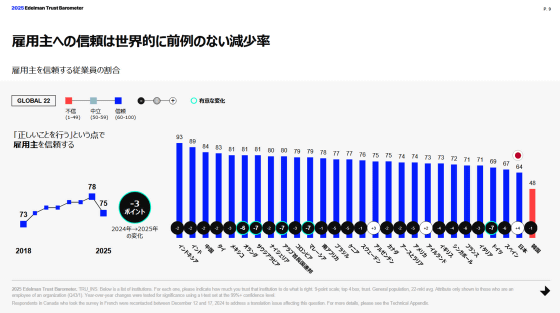
57% of Japanese people agree that 'the wealthy do not pay their fair share of taxes,' and 47% agree that 'the selfish behavior of the wealthy causes many problems.' It appears that the majority of people believe that the wealthy are unfairly wealthy.
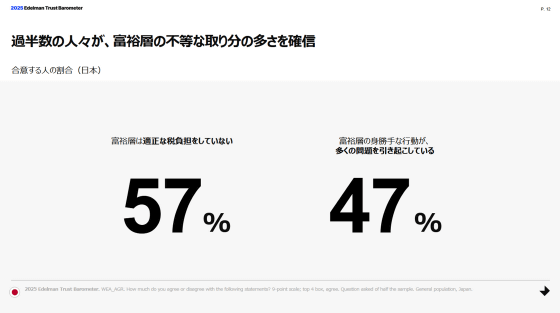
The survey also looked at whether aggressive behavior is acceptable in order to bring about social change. The survey found that 18% of Japanese people approve of 'personal online attacks,' 22% approve of 'intentionally sharing false information,' 18% approve of 'threatening or using violence,' and 20% approve of 'damaging public or private property.' Thirty-five percent of Japanese people approve of any of these behaviors, rising to 43% among young people aged 18-34. While this figure is lower than
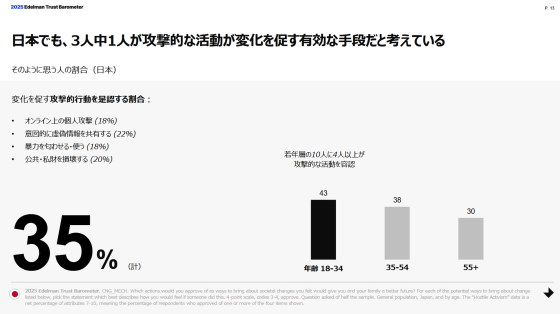
Only 36% of people across the 28 countries believe that 'things will be better for the next generation than they are now,' and in Japan, the figure is just 14%, suggesting that most people lack hope for the future.
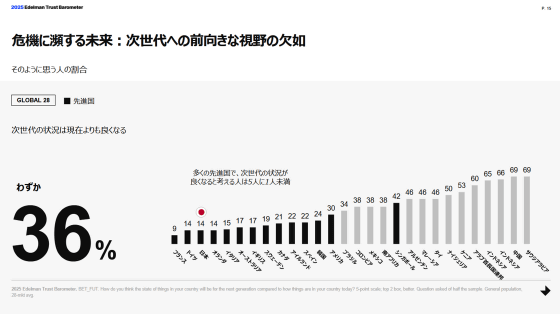
The percentage of people who 'fear being subjected to prejudice or discrimination (including racism)' was 63% across all 28 countries, up 10 percentage points from 2024. Japan was significantly lower at 47%, the only country among the 28 surveyed to see a negative figure.
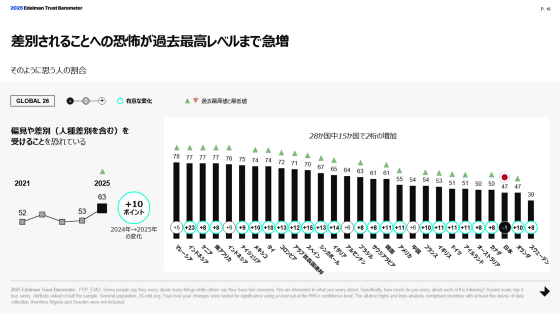
65% of Japanese people feel dissatisfied and angry towards corporations, the government, and the wealthy. Reasons cited include 'corporations and the government favor a select few,' 'their actions have a negative impact on me,' 'the system favors the wealthy,' and 'the wealthy are getting even wealthier.'
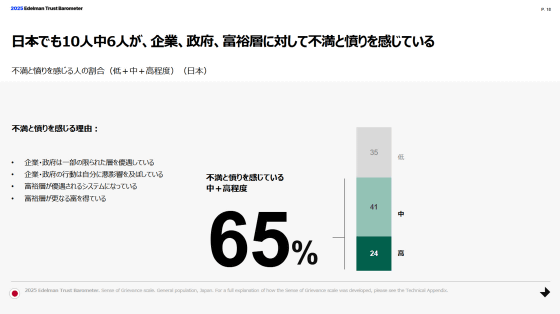
Related Posts:
in Note, Posted by log1h_ik


